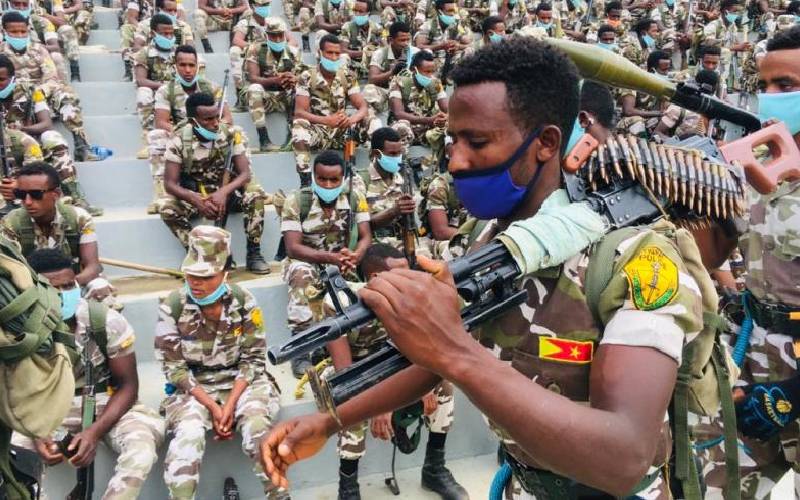×
The Standard e-Paper
Join Thousands Daily

A military parade by heavily armed elite members of Tigray regional state’s special forces in the streets of Mekelle, the capital. [Social Media]
After a year of fighting, the leader of Ethiopia’s Tigray People's Liberation Front (TPLF) has ordered his forces to withdraw from all areas outside Tigray.